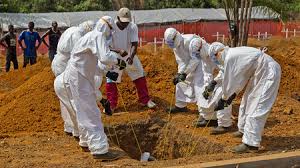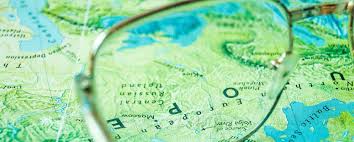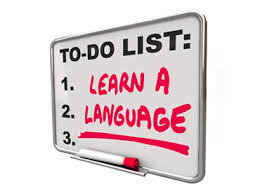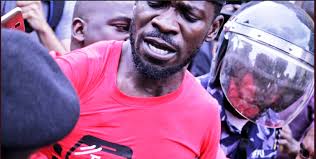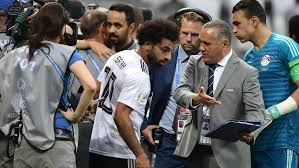Ebola can as well be referred to as hemorrhagic fever. Ebola is a virus disease that causes problems with how blood clots which results into internal bleeding as blood leaks from small blood vessels in one’s body. Ebola can be transmitted through direct contact with body fluids say blood, saliva, sweat, tears, mucus, vomit of people infected with it. Therefore one should stay away from the infected in order to reduce the spread. Symptoms of the disease may comprise fever, sore throat, headache, muscular pain and diarrhea and these are most likely to appear 21 days after one has been affected. Thus with such symptoms one is required to seek early treatment before the disease cannot be treated any more.
The national laboratory (INRB) confirmed on 7 August that the current outbreak is of the Zaire Ebola virus, a deadly one and the same one that affected West Africa during the 2014-2016 outbreak.
Historical Facts About Ebola
With the current outbreak occurring in the North Kivu (Kivu Nord) and Ituri provinces of the DRC being the most populated provinces in DRC, one should know that it is not the first.
History has that Ebola was just discovered in the early 1970 in the democratic republic of Congo formerly known as Zaire. It’s outbreak, Infected over 300 people covering over 200 deaths from then on wards, sporadic out break have occurred in Africa with an expectation of years between 1979-1994 with a death of over 400 people in year 2000.The recent outbreak started accumulating again in August 2018 from Congo and into Uganda around 9th-10th of June. With such a worry, various groups have since then come up with campaigns to fight this disease say the most popularly known UN, Red Cross and USAID. These all working hand in hand to sensitize people about the killer disease and encouraging people to report any suspicion of the disease early to the concerned persons. They have as well gone ahead to educate people on how to live Ebola free.
Declare a Global Emergency
In 2014, the WHO’s decision to declare the outbreak a public health emergency of international concern or PHEIC — came less than five months after the virus was detected. At that point, there had been fewer than 1,000 deaths.
In the current outbreak, the WHO’s emergency committee debated the issue three times — in October, April and just last month, as the outbreak enters its second year. But the emergency committee concluded that the ongoing response would not be enhanced by formal temporary recommendations from WHO.”
For example, a declaration could inadvertently provoke travel bans, visa cancellations and trade freezes, which would further devastate the fragile region’s economy while making health workers’ jobs more difficult. International health regulations forbid such actions, but they happen anyway. Fifty-eight countries restricted travel from West Africa during the 2014-2016 epidemic, and several airlines ceased flights to and from the region.
Research also suggests that the decision to declare a global emergency is often influenced by an outbreak’s degree of impact on the United States. In 2014, the PHEIC designation came just six days after infected health workers first arrived the United States.
Sensitize People about the Killer Disease
One wise man once said that two heads are better than one. Therefore with such a saying most preferably groups should vividly work hand in hand with professional translation companies to sensitize people about the disease. Despite that people still believe that this disease is meant to steal from them by foreigners so as to make money, there is still a better way to educate the masses on how to eradicate this epidemic. This can be done best through professional translation service that can avail basic information to the world at large in different languages that various people understand best. Some of these African languages include Swahili, Lingala, Yoruba, Tigrinya, Somali, Bemba, Kinyarwanda, Rukiga, Madi, Ndebele among many others. This has no exception with the European and Asian languages like German, Spanish, Italian, Ukrainian, Russian, Turkish and many others. Mandarin/Cantonese, Thai, Punjabi, Urdu, Indonesian/Bahasa, Malay, Hindi and many more.


